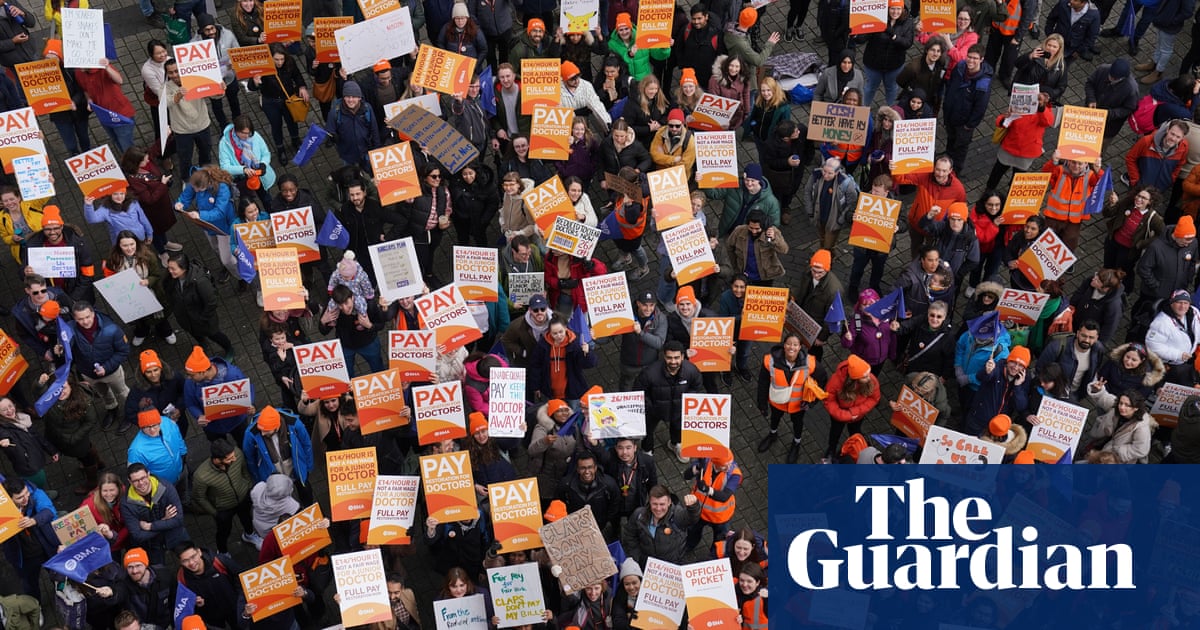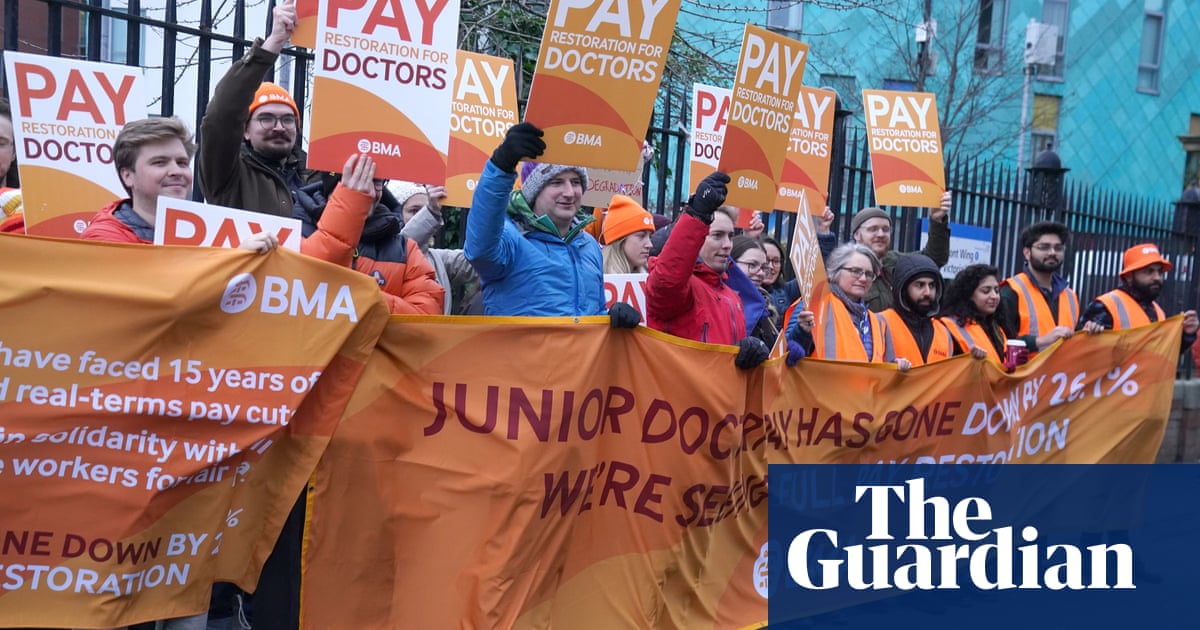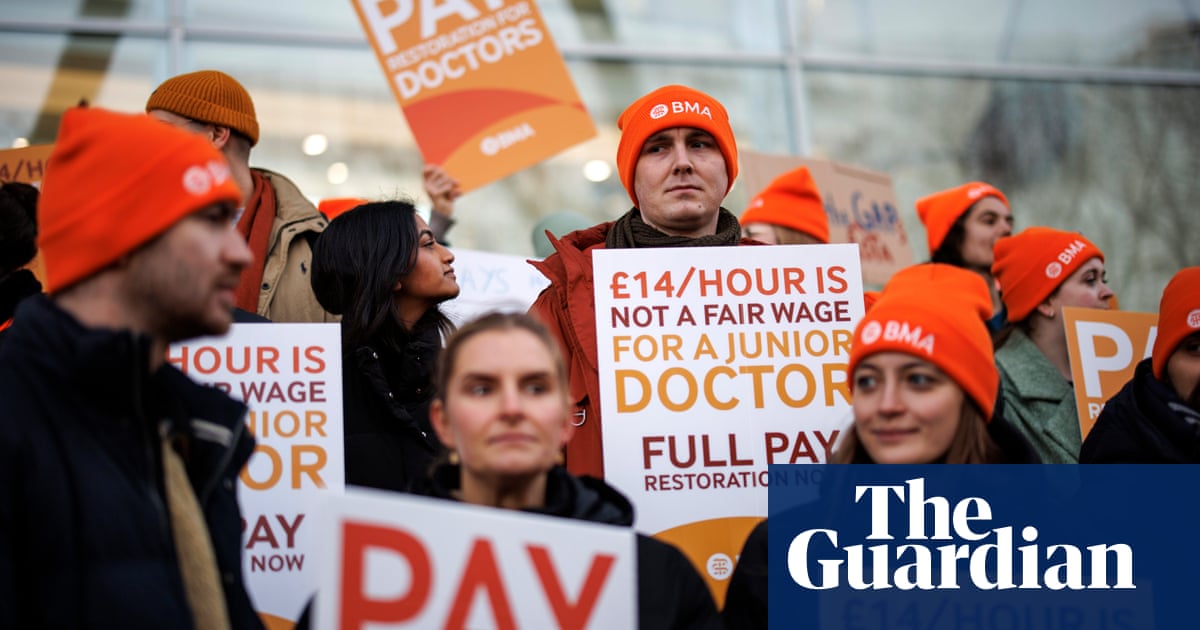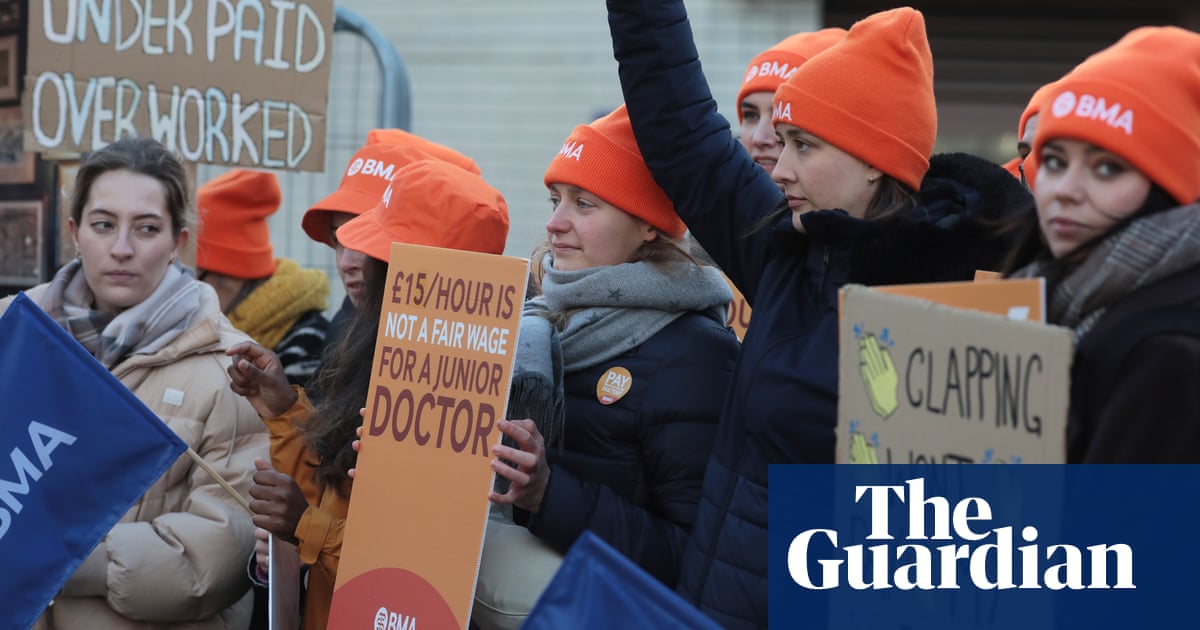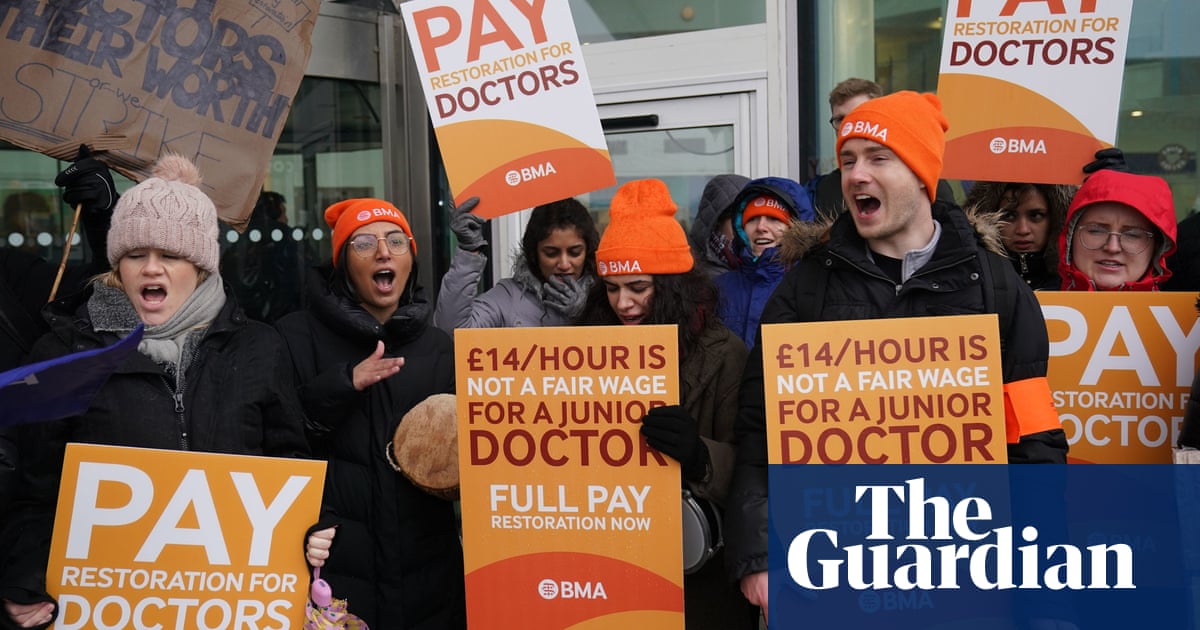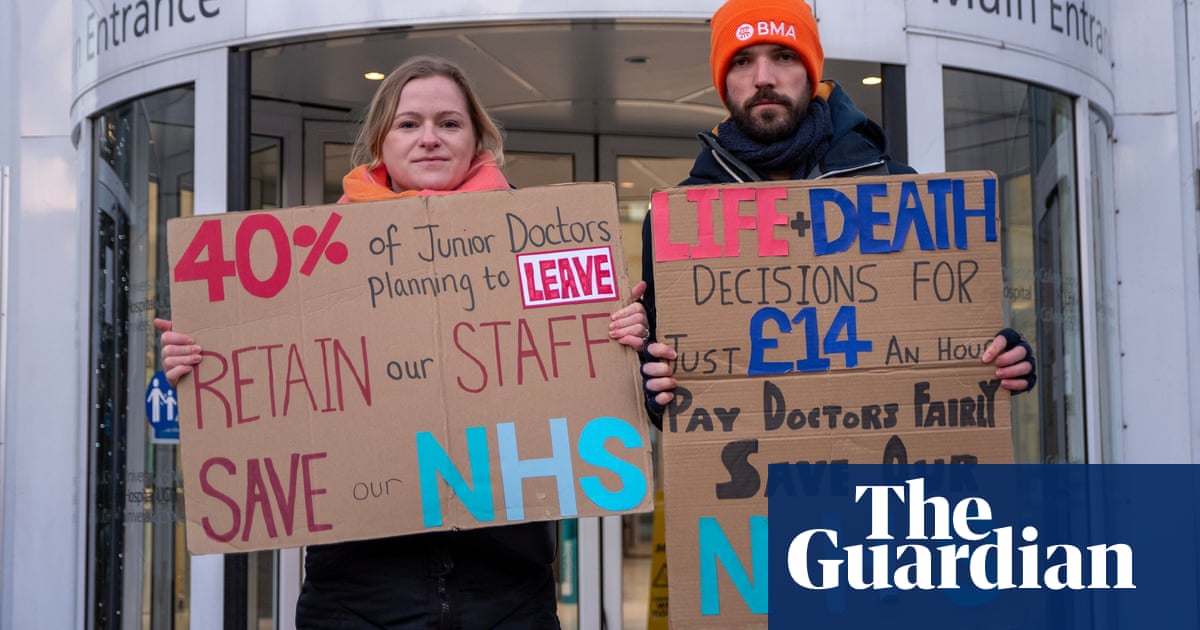
Patient safety will be put at risk in the next round of junior doctors’ strikes in England, a health leader has warned while pleading for ministers and the British Medical Association (BMA) to end the dispute.
Junior doctors have returned to work after a three-day strike, with the next spell of industrial action – the longest in NHS history – less than a fortnight away.
The NHS Confederation chief executive, Matthew Taylor, urged the government and the BMA to break the deadlock, saying it was “not a time for standing on ceremony”.
Junior doctors are demanding a 35% pay rise to make up for the 26.2% fall in the value of their pay since 2008. They were offered a 3% rise on top of the average 8.8% increase they were given in the summer. The BMA said the money would have been split unevenly across different grades and would “still amount to pay cuts for many doctors”.
Taylor said: “It appears that the BMA won’t enter talks unless the government commits to some extra money; the government won’t go into talks until the BMA calls off the strikes.
“This is not a time for standing on ceremony. This is a time for people to get around the table. It isn’t too late to head off those strikes in January.
“In a sense, neither side wants to blink first, as though that would be a sign of weakness. I think, from the perspective of the public, patients, or other people who work in the NHS, anyone who moved first, I think, will get a great deal of credit for that. So I would call on both sides to show a bit of imagination and get into talks.”
He said the NHS had coped “pretty well” with the walkout but it had hampered efforts to discharge patients for Christmas.
“Six days of strike action following a bank holiday at a time of enormous pressure, there are real issues around patient safety and we don’t have in place national derogations, which we have had for other strikes,” he said.
“So, yes, there will be an impact on the backlog, but I also have real concerns about patient safety over these days.”
He added: “We’ve coped, I think, pretty well with the last few days, partly because we’ve become sadly so used to planning for strike action.
“But there has been some impact. What I’ve picked up is some impacts in terms of being able to discharge people before Christmas.
“We rely on, generally most years, we are able to discharge more people before Christmas to be back home, for example, with their families, and that’s been slowed down.”
Industrial action was announced earlier this month after weeks of talks between unions and ministers.
The health secretary, Victoria Atkins, suggested on Thursday that “many, many doctors” would be feeling “deeply uncomfortable” about the timing of the strikes.
In response, Dr Robert Laurenson and Dr Vivek Trivedi, the co-chairs of the BMA’s junior doctors’ committee, said the comments were “disappointing” after what they had thought was “an improved tone and approach from Ms Atkins”.
Their statement added: “We did not walk away from negotiations and we are happy to talk to Ms Atkins at any time.
“It is the government’s insistence that they will not talk while strikes are scheduled that is blocking progress and wasting unnecessary time. We appeal directly to Ms Atkins and the government to drop this precondition and get back around the table.”
The next junior doctors’ strike will begin at 7am on 3 January and end at 7am on 9 January. It will be the longest strike in the 75-year history of the NHS.




